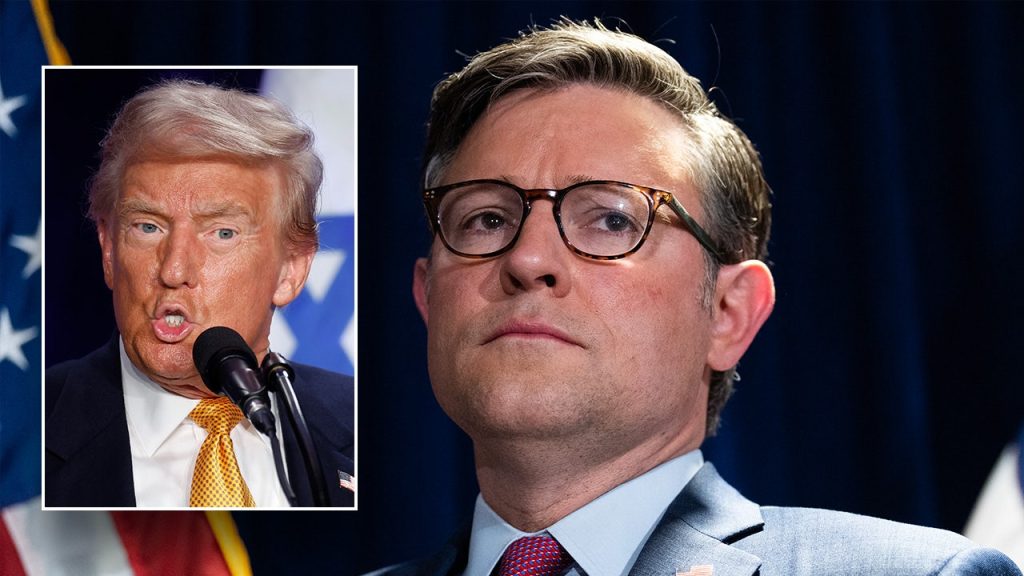The looming House Speaker election has become a source of anxiety for some Republicans, who fear a protracted fight could jeopardize the certification of President-elect Trump’s victory. Speaker Mike Johnson faces opposition within the GOP, raising concerns that the January 3rd vote could mirror the drawn-out battle earlier this year, which saw multiple rounds of voting before a Speaker was finally chosen. This delay is particularly worrisome given the impending January 6th deadline for certifying the 2024 election results. Several House Republicans, including Reps. Carlos Gimenez, Pat Fallon, and Claudia Tenney, have publicly stressed the importance of a swift Speaker election, emphasizing that without a Speaker, the House cannot certify the election, potentially delaying Trump’s inauguration and the implementation of his agenda. They are calling on Trump to publicly endorse Johnson and quell dissent within the party to ensure a smooth transition of power.
The heart of the issue lies in lingering dissatisfaction within the Republican ranks over Johnson’s handling of recent government funding legislation. Critics, including some hardliners, were angered by the inclusion of policy riders in the short-term spending bill and Johnson’s failure to link action on the debt ceiling to the funding measure, a move Trump had advocated for. This defiance of Trump’s wishes has fueled speculation that the former President might be wavering in his support for Johnson, further complicating the Speaker race. While Trump has remained publicly silent on the matter, his allies, such as Sen. Ted Cruz, have staunchly defended Johnson, touting his conservative credentials and warning against a more moderate replacement.
Rep. Fallon believes that a timely intervention from Trump, perhaps even a highly visible meeting with Johnson, could sway hesitant Republicans and solidify support for the current Speaker. He argues that the dissent against Johnson’s funding approach was rooted in principle, not personal opposition, and that many of those who voted against the measure remain open to supporting Johnson with Trump’s backing. However, this optimism is tempered by the vocal opposition of some members, including Rep. Thomas Massie, who has explicitly stated his intention to vote against Johnson. Others, like Reps. Andy Harris and Michael Cloud, have signaled their wavering support, adding to the uncertainty surrounding the vote.
The situation is further complicated by reports of Trump’s dissatisfaction with Johnson’s handling of the government funding and debt ceiling issues. This perceived rift between Trump and Johnson has emboldened Johnson’s detractors and created an opening for potential challengers. While Trump’s public silence leaves his intentions unclear, his influence on the outcome remains undeniable. Several House Republicans have acknowledged that Trump’s preference will be a decisive factor in their decision-making process. Rep. Tim Burchett, for example, admitted that Trump’s endorsement of Johnson would likely sway him despite his previous opposition to Johnson’s legislative strategies.
Johnson’s slim three-vote majority within the GOP caucus further underscores the precariousness of his position. With little prospect of garnering Democratic support, he cannot afford to lose many Republican votes. The upcoming Speaker election is shaping up to be a critical test of Trump’s influence within the party and a potential indicator of the internal divisions that could plague the GOP during the upcoming legislative session. A protracted Speaker battle could not only delay the certification of the presidential election but also hinder the new administration’s ability to enact its agenda, potentially jeopardizing Trump’s legislative priorities for his second term.
The uncertainty surrounding the Speaker vote highlights the ongoing tension within the Republican Party between its more establishment wing and the hardline faction. The government funding debate served as a microcosm of this broader ideological divide, pitting fiscal conservatives against those prioritizing other policy goals. The outcome of the Speaker election will likely have significant implications for the balance of power within the GOP and could foreshadow the direction the party takes in the coming years. The pressure is mounting on both Johnson and Trump to navigate these internal divisions and ensure a unified front as the new administration prepares to take office.

